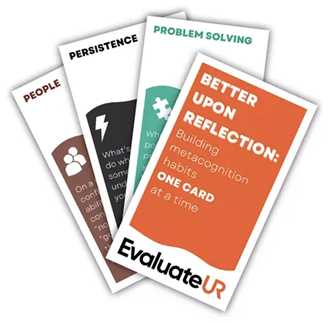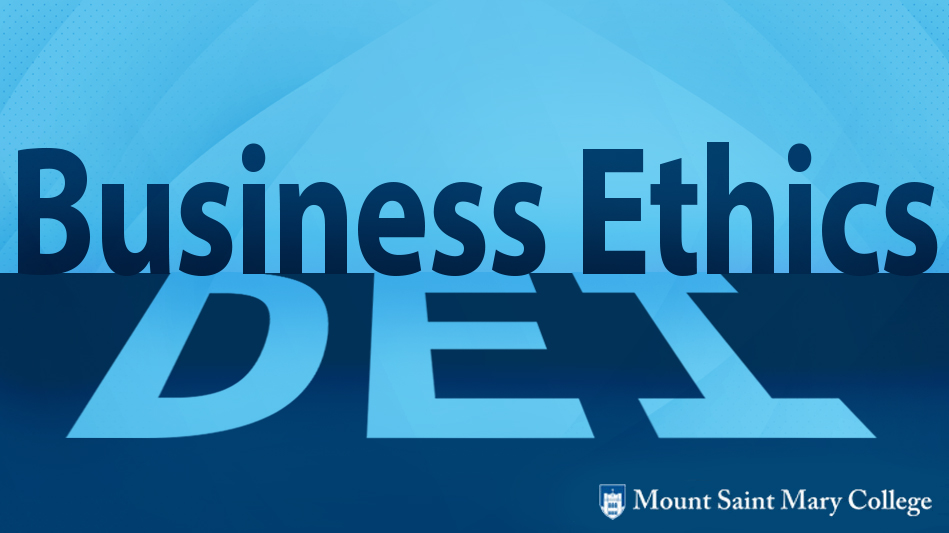by Patrick Cunningham, Ph.D., Rose-Hulman Institute of Technology
Learning takes effort and can feel hard at times. Likewise, learning to manage one’s learning processes better, growing metacognitively, is an effortful process. Because approaches to learning are habitual, deeply ingrained over time, changing them is hard. Metacognitive growth often progresses in fits and starts with cycles improvement and relapse into old habits. This is true for our students and for us as instructors. Remembering this can help us help them better with metacognitive lessons that can guide them throughout their lives.
I often say that teaching students about metacognition and engaging them in their metacognitive growth is one of the most important and authentic things I do academically. I have expertise within my field (Mechanical Engineering, Dynamic Systems and Control) and I am accomplished at applying it to engineering problems. When I engage students in learning this content, I model this expertise. I strive to make my content-focused teaching authentic, but it isn’t authentic in the same way as providing instructional experiences for my students on metacognition. While I may know which disciplinary concepts students will likely struggle with, my struggles with those concepts are a distant memory. However, as I engage my students in metacognitive growth, i.e., changing my habitual approaches to learning, my struggles are concurrent with theirs.
Becoming a student again
For example, I have encountered my metacognitive struggles as I have been learning German, initially as a hobby and now more intentionally as I prepare for a sabbatical in Germany. About a year-and-a-half ago I decided to sign up for a Duolingo account to see if I could resurrect and build on my prior German language experience. I had just signed my children up for accounts to practice Spanish and sensed an opportunity to finally work towards a long-held personal goal – becoming proficient in another language. Armed with my knowledge of metacognition, I wanted to make my practice effective and efficient. I set a modest but good practice goal of two grammar modules per day, and I jumped in. I have been consistent in my daily practice – only missing about three days in 18 months – and I have added some varied strategies to practice German – Duolingo stories (spoken dialogues with text), trying to use basic phrases in my daily life, and trying to read German news stories. However, I have also noticed some metacognitive pitfalls in my language practice, even as I have gotten more serious about it.
I have not engaged in recall practice, despite the pop-up messages reminding me that I should take time after a session to recall new vocabulary and key grammar and usage insights. I also know its value, but I tell myself I just don’t have time. I am avoiding a good strategy and making poor use of my metacognitive knowledge of strategies and tasks.
I also lack a clear learning goal. What does proficient mean? How will I know I have achieved it? What are appropriate incremental goals that build towards proficiency? Admittedly, for most of this time, this has been more of a hobby pursuit, but if I really want to develop the skill, I need more specific, even if still modest, learning goals. This is poor metacognitive planning.
Then there is how I track my progress. I am sad to say I have taken pride in the number of XP points (virtual points within Duolingo) I have accrued and the number of modules I have crossed off. They are easy to count, but this does not really assess my proficiency with the German language accurately. This is poor metacognitive monitoring of my learning.
Within the story modules, I am tentative and find myself relying too much on being able to hover over the words to see the definition before answering the comprehension questions. Why do I find it hard to commit to an answer, right or wrong, and learn from it? It feels hard, but as I tell my students, this is how you know you are learning. I am relying on a lower quality strategy because it feels good.
Acknowledging the Same Struggles
So, each time I bring up metacognition with my students, I am faced with the reality of my struggles with it, as demonstrated by the pitfalls in my German language practice. Thus, I teach about metacognition, not as an expert who has it all figured out, but rather as one who is, perhaps, further along the path. This is humbling. So, what can I do with this struggle? Can I really engage my students in their metacognitive growth if I am struggling with my own metacognitive growth? Yes! But how I go about it matters.
If I ignore talking about metacognition altogether, then I might avoid feeling uncomfortable about my failings with it. But I would not likely grow myself nor help my students grow metacognitively. If I pretend I have it all figured out, then I risk being found-out, losing my credibility, and sabotaging my students’ potential metacognitive growth.
However, if embrace my struggles with metacognition and am honest about them with my students, then I might be able to grow myself while I also help my students. There are at least two mechanisms for positive impact, acknowledging my similarity to my students and providing my students a concrete model of metacognitive growth in practice.
When I accept that I am like my students and my students are like me in struggling with metacognitive practice and growth (e.g., my German language studies), I gain a more complete view of my students. I can no longer view them as just lazy, unmotivated, or lacking in work ethic. Instead I can see sincere effort and a desire to learn and do well in classes, in spite of less effective learning behaviors. When I see my students in this way, I have a better attitude when I interact with them. This enables me to authentically praise the positive aspects of their learning behavior and to more gently challenge the less effective aspects they are relying on. It can move our interaction from a place of discouragement to one of encouragement and can help students to view their ability to grow into the learning challenge before them. When I recognize that my students have similar barriers to metacognitive growth as I do, I am able to be more compassionate and supportive as I help them face the challenges they experience in their learning.
Points of Connection
Sharing my own metacognitive struggles, e.g., with my German language practice, can provide a point of connection with my students. Students can have a hard time identifying with their instructors, viewing us as experts with experiences far removed from theirs. It is heartening to see students warm up to me and talk more openly and honestly about their approaches to learning when I have shared elements of my struggles with learning German. Suddenly, the relational distance between us shrinks because I have a present learning experience, concurrent with theirs, that they can readily identify with. Such authentic connections build trust and a foundation for a relationship, which can lead to further support and processing of their learning experiences.
Beyond forging an authentic connection, I can also constructively model of the effortful and continual path to becoming a more skillful learner, i.e., metacognitive growth. Sharing my critiques of my German language practice can demonstrate metacognitive evaluation of my learning processes and my openness to ongoing refinement. However, metacognitive growth does not stop with recognizing ineffective or less effective learning strategies. It requires doing something about it, enacting a productive change. For example, I could share a more refined and specific goal – such as, wanting to be able to engage in pleasantries and make small talk in German – which also helps direct my practice and how I monitor my progress.
How can this look within a specific class? This winter I have been teaching computer programming, and I have found it useful with a few students to draw analogies between my language practice and working towards proficiency with programming concepts. Becoming conversant in German requires more than just knowing German grammar rules, e.g., declensions for accusative cases. I must practice using it in conversation, that is, applying it. Similarly, to become proficient with programming I must know how to write conditional statements and loops, but I also must know how to apply them in various ways to accomplish a specified task – I have to practice applying the concepts. I was trying to model the need to align learning strategies with specific learning goals.
In summary, if I can identify with my students, I can better help them with their metacognitive growth. It helps me to be more gentle and supportive in my desire to see them grow metacognitively. It can also can help my students connect with me and see that they too can persist in their metacognitive growth when I am forthright with my metacognitive shortcomings. Being authentic matters and it can help me do what I think is the most important teaching that I do, helping my students become better learners. These are enduring lessons that can help them be successful throughout their lives, even if they forget the content that I was teaching!




